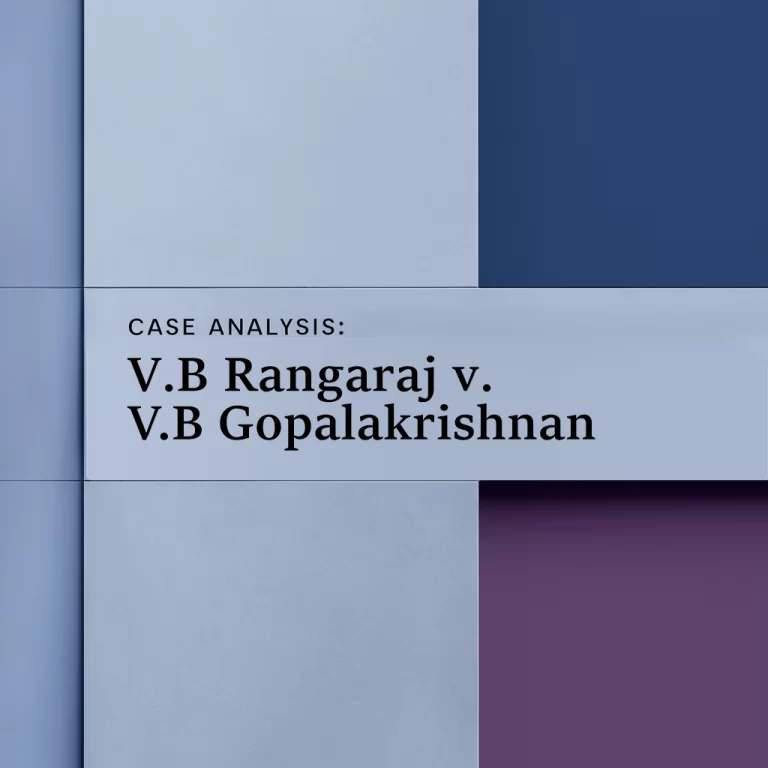Legal Blogs
legal blogs Directory
Corporate Governance Best Practices in India
Commercial Dispute Resolution in India
Ad Hoc Arbitration: A Comprehensive Guide
Tax Implications in Shareholders’ Agreements
Legal Due Diligence Guide in India
Decoding Fintech Regulations in India
Overview of Banking Regulation Act, 1949
Ultimate Guide to Share Purchase Agreements
Complete Guide to Anti-Dilution Clauses
Term Sheets in India: Complete Guide (2024)

Tax Implications in Shareholders’ Agreements
Introduction A shareholders’ agreement, from a tax perspective, involves several critical considerations under the Income Tax Act, 1961 and related regulations. These considerations can significantly influence the financial outcomes for both the shareholders and the corporation involved. Specifically, the tax implications of these agreements in India hinge on various factors such

Ultimate Guide to Liquidation Preferences in India
Understanding Liquidation Preferences Liquidation preferences represent a pivotal aspect of investment agreements, serving as a safety net for financial backers in the volatile ecosystem of venture capital and startup finance in India. These provisions prioritize investors over other equity holders in receiving payouts from the company’s assets during liquidation events,

Unveiling the Legal Framework of Venture Capital in India
Introduction Venture capital (VC) has emerged as a pivotal force in fuelling India’s economic growth, especially in the startup ecosystem. VC funds play a crucial role in providing the necessary capital, mentorship, and resources to innovative startups that have the potential for high growth but are too risky for traditional

Legal Due Diligence Guide in India
Introduction Legal due diligence helps in identifying legal obstacles that could derail a transaction, evaluating the legal risks associated with the business, ensuring compliance with laws and regulations, and safeguarding against future legal challenges. In the context of mergers and acquisitions (M&A), investments, or other commercial transactions, legal due diligence

Guide to SEBI Regulations in M&A Deals in India
Introduction Mergers and Acquisitions (M&A) in India are governed by a comprehensive legal framework, designed to ensure fair play, protect stakeholders’ interests, and maintain market integrity. At the heart of this regulatory environment is the Securities and Exchange Board of India (SEBI), which plays a pivotal role in overseeing and

Understanding Competition Law in India: A Comprehensive Guide
Comprehensive Guide to Competition Law in India The Competition Act, 2002, marked a significant shift in the approach toward regulation of competition in India, moving from prohibitions of monopolies to promoting and sustaining competition. This Act was enacted to prevent practices having an adverse effect on competition, to promote and

Case Analysis: V.B. Rangaraj v. V.B. Gopalakrishnan
Impact of V.B. Rangaraj v. V.B. Gopalakrishnan on Shareholders’ Agreements and Articles of Association The landmark Supreme Court case of V.B. Rangaraj v. V.B. Gopalakrishnan, AIR 1992 SC 453 tackled the crucial question of whether shareholders have the liberty to enter into agreements that deviate from or conflict with the

Non-Disclosure Agreements (NDAs): Protecting Confidential Information
Introduction A Non-Disclosure Agreement (NDA) is a legally binding contract that establishes a confidential relationship between parties agreeing to share specific information for certain purposes while restricting access to or disclosure of the same information to others. NDAs can be unilateral, where only one party is bound to the confidentiality

Drafting Effective Arbitration Clauses in Contracts
Introduction The legislative framework governing arbitration in India has undergone significant evolution, marked by the enactment and subsequent amendments of the Arbitration and Conciliation Act, 1996 (the Act). This piece of legislation, inspired by the UNCITRAL Model Law on International Commercial Arbitration, 1985, represents a paradigm shift towards making India

Abuse of Dominant Position: Provisions and Case Studies
Understanding Abuse of Dominant Position Critical for Businesses Abuse of dominant position is a fundamental concept in antitrust law that prohibits companies with significant market power from engaging in conduct that harms competition. In India, Section 4 of the Competition Act, 2002 prohibits enterprises or groups from abusing their dominant

Decoding Fintech Regulations in India
Key Regulatory Bodies Overseeing Fintech in India Reserve Bank of India (RBI) As the central banking institution, the RBI is pivotal in regulating the financial sector, including fintech. The RBI oversees banks, non-banking financial companies (NBFCs), and various payment service providers. In January 2022, the RBI established a specialized Fintech

Foreign Exchange Management Act (FEMA) Regulations for Cross-Border Transactions
Introduction The Foreign Exchange Management Act (FEMA) enacted by the Parliament of India in 1999 was to consolidate and amend the laws relating to foreign exchange. It replaced the earlier Foreign Exchange Regulation Act (FERA), 1973, which was deemed more restrictive and not in line with India’s post-liberalization policies. FEMA serves

Regulatory Framework for Non-Banking Financial Companies (NBFCs)
Introduction Non-Banking Financial Companies, or (NBFCs), are financial institutions that provide banking services without meeting the legal definition of a bank. They are registered under the Companies Act, 2013 and operate under the regulatory purview of the Reserve Bank of India (RBI) as per the provisions of Chapter III-B of

Alternative Investment Funds (AIFs) in India – Legal Framework
Introduction Alternative Investment Funds (AIFs) in India are defined under Regulation 2(1)(b) of the Securities and Exchange Board of India (Alternative Investment Funds) Regulations, 2012 (SEBI (AIF) Regulations). They encompass privately pooled investment vehicles which collect funds from sophisticated investors, both Indian and foreign, for investing it in accordance with

Prudential Norms for Banks: Capital Adequacy, Asset Classification, and Provisioning
How Prudential Norms Shape the Framework for Sustainable Banking Prudential norms by the Reserve Bank of India (RBI) are established under the guidance and provisions of the Banking Regulation Act, 1949, and the Reserve Bank of India Act, 1934. These norms encompass a wide array of regulations covering capital adequacy,

Insolvency and Bankruptcy Code for Corporate Debtors
Key Components of the Insolvency and Bankruptcy Code for Corporate Debtors The Insolvency and Bankruptcy Code, 2016 (IBC), was introduced by the Government of India as a landmark legislation to consolidate and amend the laws relating to reorganization and insolvency resolution of corporate persons, partnership firms, and individuals in a

Overview of Banking Regulation Act, 1949
Understanding the Banking Regulation Act, 1949 The Banking Regulation Act, 1949, stands as a cornerstone in the Indian legal framework, primarily aimed at regulating the banking sector in India. The Act empowers the Reserve Bank of India (RBI) with extensive regulatory and supervisory powers over banking companies. It includes provisions

IP Due Diligence in India: Complete Checklist (2024)
Introduction Intellectual Property Due Diligence in India involves a meticulous examination of the intellectual property assets owned, licensed, or utilized by an entity. This assessment is crucial for uncovering the existence, validity, enforceability, and scope of these assets. Indian legislation, primarily the Patents Act, 1970, the Trademarks Act, 1999 and

Share Purchase Agreements and Investor Benefits
Introduction Share Purchase Agreements (SPAs) serves as the backbone for transactions involving the sale and acquisition of shares in companies. These agreements are crucial for both domestic and international investors looking to navigate the Indian market, offering a structured approach to mergers, acquisitions, and investment strategies. The significance of SPAs

Ultimate Guide to Share Purchase Agreements
What is a Share Purchase Agreement? A Share Purchase Agreement (SPA) is a contract between a buyer and a seller for the sale and purchase of company shares. It outlines terms for the transaction, including share valuation, payment conditions, and both parties’ obligations. In India, SPAs must consider the Companies

Right of First Refusal (ROFR) in Shareholders’ Agreements
Introduction to Right of First Refusal The Right of First Refusal (ROFR) is a contractual right that enables a party (the holder) to enter a business transaction with another party (the grantor) before any third party can. This right is typically exercised when the grantor intends to sell an asset,

Right of First Offer (ROFO) Clauses in Shareholders’ Agreement
Introduction Right of First Offer (ROFO) is a contractual agreement clause commonly employed in business transactions, especially in mergers and acquisitions, shareholder agreements, and real estate transactions. ROFO grants a party the right to make the first bid to purchase a specific asset before the seller can offer it to

Complete Guide to Anti-Dilution Clauses
What are Anti-Dilution Clauses? Anti-dilution protection clause is a critical mechanism in venture capital financing, designed to safeguard the interests of existing investors from the dilution of their ownership stakes in a company in case of mergers and acquisitions. This dilution typically occurs when a company issues new shares at

Essential Clauses in a Shareholders’ Agreement
Essential Clauses in a Shareholders’ Agreement What is a Shareholders’ Agreement? A Shareholders’ Agreement is a vital legal contract between the shareholders of a company, detailing their rights, duties, and the governance structure of the company. It operates alongside the Articles of Association but remains confidential and customizable to suit

Term Sheets in India: Complete Guide (2024)
Mastering Term Sheets in India What Is a Term Sheet? A term sheet is essentially a non-binding agreement that outlines the key terms and conditions of a proposed investment or business deal. It serves as a blueprint for the negotiations between the parties involved, typically covering aspects such as valuation,

Definitive Guide to Shareholders Agreements in India (2024)
What is a Shareholders Agreement? Shareholder Agreements are a contractual arrangement among shareholders detailing the company’s operational guidelines and the shareholders’ rights and duties. While there is no specific statute in Indian law for these agreements, they are enforceable under the Companies Act, 2013, when aligned with the Articles of

M&A Legal Framework in India: A Comprehensive Guide
Introduction to Mergers and Acquisitions in India The Indian market has increasingly become a hub for mergers and acquisitions (M&A), reflecting the country’s growing economic prominence. This surge in M&A activities is driven by various factors including globalization, economic reforms, and technological advancements. The landscape of M&A in India is

M&A Due Diligence Checklist: Essential Strategies for Effective Mergers
Introduction: M&A Due Diligence Mergers and Acquisitions (M&A) represent pivotal moments in the life of a business, offering opportunities for growth, expansion, and strategic realignment. Central to the success of any M&A transaction is the process of due diligence. Due diligence in M&A is a comprehensive appraisal of a business

Mastering M&A Due Diligence: A Comprehensive Guide for Success
Understanding the Essentials of M&A Due Diligence In mergers and acquisitions (M&A), the term ‘due diligence’ emerges as a cornerstone of successful deals. This preliminary stage not only dictates the feasibility of a transaction but also significantly influences its outcome. In this guide, we delve into the essential aspects of

The Business Rationale: Mergers and Acquisitions Benefits
Mergers and acquisitions (M&A) have become a popular business strategy for companies looking to expand into new markets, add capabilities and talent, or consolidate to reduce costs. But why exactly do companies pursue M&A? What are the strategic reasons and benefits that make these deals so appealing? Let’s examine the

Mergers and Acquisitions in India: An Introductory Guide
What are Mergers and Acquisitions? Global Overview of M&A Mergers and Acquisitions (M&A) have been a longstanding strategy in the global business world, driving growth, innovation, and transformation. From acquiring competencies to venturing into new markets, businesses worldwide utilize M&A to consolidate their position and gain a competitive edge. The
